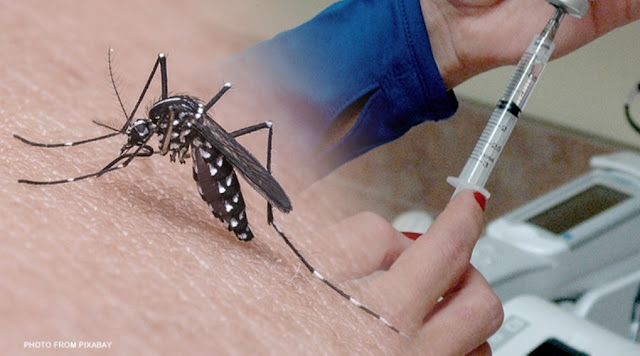The effects of Dengue Vaccine in Healthy Children involving children and adolescents between the ages of 4 and 16
Dengue fever is a pandemic-prone viral disease whose
prevalence has increased by a factor of 30 in the last 50 years. Nearly half of
the world's population lives in dengue-endemic areas in more than 100
countries, with an estimated 390 million cases of dengue virus infection each
year. Dengue fever can range from asymptomatic infection to severe disease with
a 20% mortality rate if left untreated. Dengue virus serotypes through (DENV-1
through DENV-4) frequently cocirculate in endemic areas. Although the infecting
serotype provides decades of protective immunity, secondary infection with a
different serotype increases the risk of severe disease.
CYD-TDV (Dengvaxia, Sanofi Pasteur), a tetravalent dengue
vaccine based on a yellow fever virus "backbone," has been licenced
in several countries based on a 56 to 61 percent vaccine efficacy against
virologically confirmed dengue in children in Asia and Latin America. Because
CYD-TDV is associated with an increased risk of severe dengue and dengue
leading to hospitalization in seronegative people, it is recommended that it be
given only to people who have had a previous infection. This leaves a
significant unmet need.
TAK-003 (Takeda) is a new tetravalent dengue
vaccines candidate based on a live attenuated DENV-2 virus that serves
as the genetic backbone for all four viruses in the vaccine, which were
originally designed and constructed by scientists at the Centers for Disease
Control and Prevention's Division of Vector-Borne Diseases (CDC). The DENV-2
strain (TDV-2) is based on DEN-2 primary dog kidney (PDK)-53, an attenuated
laboratory-derived virus. The other three virus strains (TDV-1, TDV-3, and
TDV-4) are chimaeras formed by replacing TDV-2's premembrane and envelope genes
with those of wild-type DENV-1, DENV-3, and DENV-4 strains.
The efficacy, safety, and immunogenicity of two doses of
TAK-003 are currently being evaluated in a large-scale, phase 3, randomised
clinical trial involving children and adolescents aged 4 to 16 in Latin America
and Asia (Efficacy, Safety, and Immunogenicity of Takeda's Tetravalent Dengue
Vaccine in Healthy Children [TIDES]). We present the preliminary results of the
first phase of this ongoing trial.




Comments
Post a Comment